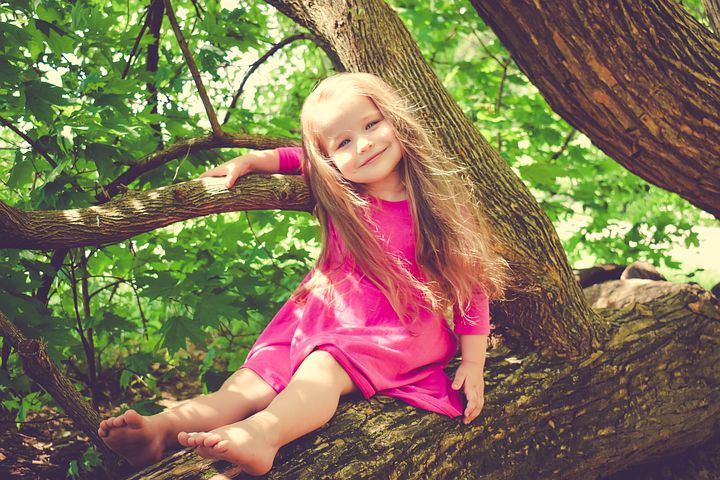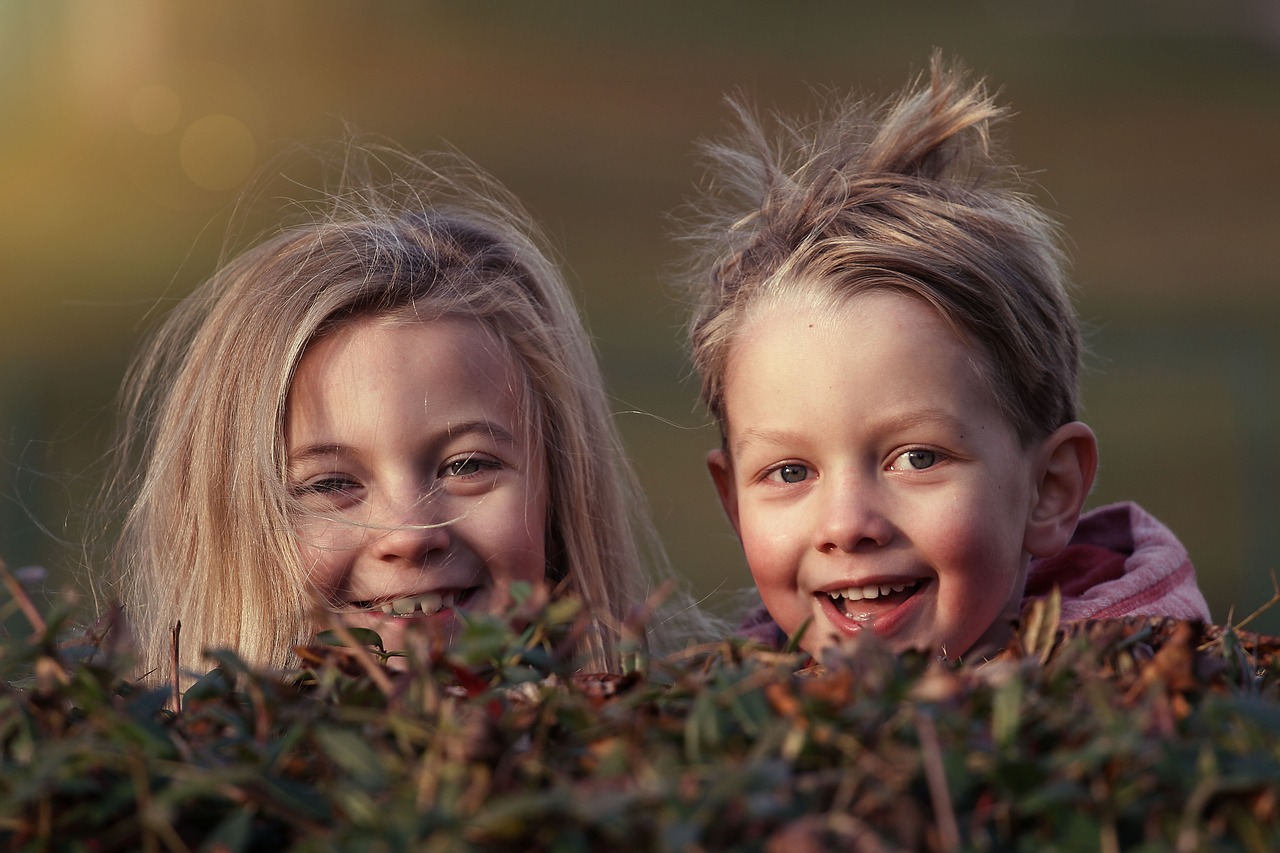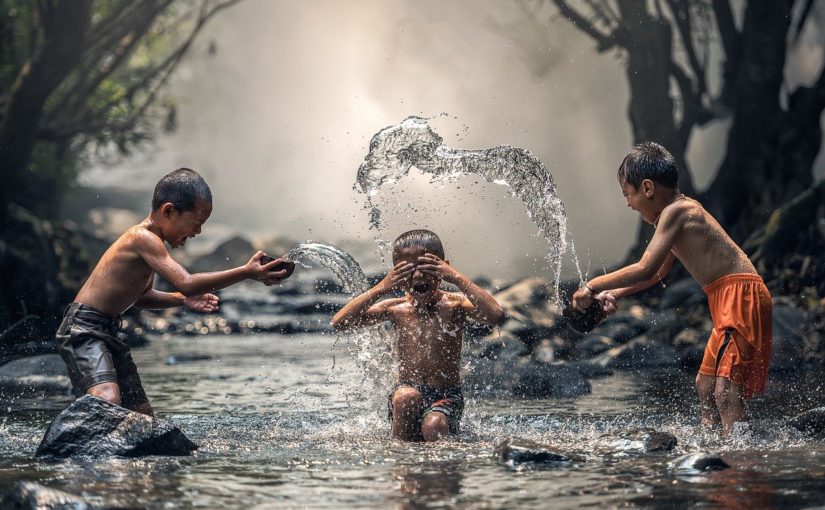Shared from Christopher Bergland’s article on PsychologyToday.com:
Countless studies have explored the characteristics associated with likability and popularity within childhood peer groups. Anecdotally, most of us know from real-life experience what tends to make some kids more popular than others.
Surprisingly, until now, “being fun” has been overlooked by most researchers; this characteristic is conspicuously absent from previous research on childhood social status. But a new study found that “some portion of peer status is uniquely derived from the perception that one is fun to be around.”
Before the coronavirus pandemic and school closures due to stay-at-home orders, researchers from Florida Atlantic University in the U.S. and Concordia University in Canada conducted a first-of-its-kind international study on the importance of being fun in early middle school.
The findings of this study, “Being Fun: An Overlooked Indicator of Childhood Social Status,” were recently published online ahead of print in the Journal of Personality.
 This longitudinal study involved hundreds of 9- to 12-year-old children (n = 669 girls, n = 604 boys) attending school in northern Colombia (South America) and southern Florida (North America). The researchers examined “the degree to which peer perceptions of being fun predict increases in being liked by classmates and being popular with classmates.”
This longitudinal study involved hundreds of 9- to 12-year-old children (n = 669 girls, n = 604 boys) attending school in northern Colombia (South America) and southern Florida (North America). The researchers examined “the degree to which peer perceptions of being fun predict increases in being liked by classmates and being popular with classmates.”
“[Our] present study concerns an overlooked trait indicator of childhood peer status: Being fun. The study is designed to identify the degree to which being fun is uniquely associated with the peer status variables of likability and popularity,” the authors explain. Brett Laursen, a professor in FAU’s Department of Psychology, is the lead author of this study.
Notably, the researchers found that being fun was a predictor of likability and popularity even after removing other variables known to contribute to high social status such as attractiveness, athletic ability, assertiveness, prosocial behavior, leadership, and others.
Well-liked kids tend to have fewer adjustment difficulties. Laursen and his co-authors also found that higher social status facilitates more fun-loving behaviors and increased perceptions that someone is fun to be around. This “halo effect” creates an upward spiral. “Fun begets status and status begets fun,” the authors said.
“Our study is novel in that no research has unambiguously measured peer perceptions of classmates who are fun and no longitudinal studies have examined whether being fun uniquely anticipates subsequent changes in peer social status,” Laursen said in a news release. “The findings also are important because, until now, only prosocial behavior and leadership have been demonstrated to prospectively predict changes in both likability and popularity.”
Is It Shallow and Superficial for Parents to Care About Their Kids’ Popularity?
Before reporting on more details of this study, I wanted to share some personal background information: As the parent of a 12-year-old daughter, my knee-jerk reaction is to dismiss any potential value garnered from winning an adolescent popularity contest. I’d never give my daughter superficial, Gossip Girl–style advice on “how to be more popular.”
 Therefore, a few days ago, when I read about this new study, which found that “being fun” boosted social status among school-age children, my first reaction was to roll my eyes and blurt out, “Who cares about social status?!” and mockingly hum the “She’s so popular” lyrics* from Peter Gabriel’s song, “Games Without Frontiers.”
Therefore, a few days ago, when I read about this new study, which found that “being fun” boosted social status among school-age children, my first reaction was to roll my eyes and blurt out, “Who cares about social status?!” and mockingly hum the “She’s so popular” lyrics* from Peter Gabriel’s song, “Games Without Frontiers.”
However, after doing a deeper dive into this research, I changed my mind about its significance. After some internal debate, I decided that highlighting the halo effect of “being fun” is worthwhile, especially when the gravity of day-to-day life during the COVID-19 pandemic has, understandably, left most of us down in the dumps.
Of course, in discussing the benefits of being fun, I’m not promoting Pollyannaish, tone-deaf “fun” at the expense of being appropriately somber and responsibly sheltering-in-place during mandated stay-at-home orders and social distancing. (See “Should Parents Pretend Everything’s Hunky-Dory, If It’s Not?“)
Why Does Being Fun and Having High Social Status Matter?
In an idealistic perfect world, popularity wouldn’t matter. But we don’t live in a utopian society. Many parents (like me) who tend to downplay the importance of peer status and popularity may also begrudgingly admit that their kids’ social status does matter.
The aspect of this study that resonated most strongly with me is the possible “halo effect” created by being fun. Having fun is intrinsically rewarding and seems to go hand in hand with being happy, which makes it more likely that you’ll have fun and appear more likable, no matter how old you are.
“This [study] raises the possibility of a reputational halo effect. Age-mates assume that children with high social status have desirable attributes, which may turn into a self-fulfilling prophesy as high-status children are given more opportunities to have fun and thereby hone their skills around others who are fun,” the authors explain.
Previous evidence-based research has shown that popular, well-liked kids tend to display a blend of prosocial behaviors and leadership traits. Studies have also shown that popular kids tend to be outgoing and assertive without being too aggressive.
Children who are fun to hang out with also display a constellation of traits that make them rewarding companions. “One potential combination is surgency and ego resilience, which make the child a novel and exciting companion,” Laursen said.
“[The] benefits of fun probably extend well beyond their immediate rewards. Fun experiences provide positive stimulation that promotes creativity,” Laursen added. “Being fun can protect against rejection insofar as it raises the child’s worth to the group and minimizes the prospect that others will habituate to the child’s presence. Finally, changes in the brain in the early middle school years increase the salience of rewards derived from novelty, in general, and fun, in particular. Children and adolescents are, quite literally, fun-seekers.”

